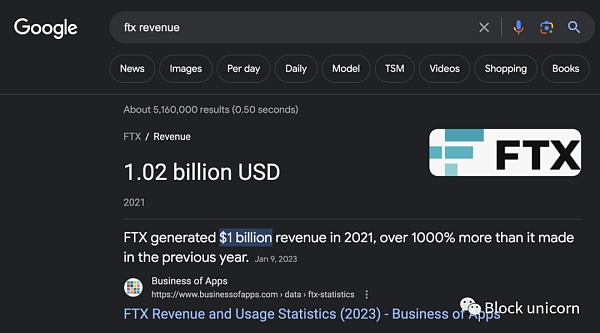Jiefang Daily commented that the development of the blockchain industry should avoid "holding high and playing high," and ecological construction can start from four aspects
Source: Jiefang Daily, original title "Blockchain Industry Development Should Avoid" Holding Up and Fighting High "
Author: Han Zhuanfeng
Blockchain is a weakly centralized, tamper-resistant, highly scalable information technology that can be deeply integrated with the Internet of Things, 5G, big data, artificial intelligence, etc., and spawn a high-level, dynamic, and complex modern business ecosystem. .
The blockchain industry is in the ascendant and has a wealth of application scenarios. As an important infrastructure of the digital economy and digital society, the blockchain system has the characteristics of strong scalability, easy deployment, and low maintenance costs. At the same time, the blockchain ecosystem has network effects and positive externalities. The more users, the richer the data, the higher the security and credibility, and the greater the ecological value. China and developed countries are on the same starting line of the development of the blockchain industry, with a larger population size and richer application scenarios, and have the advantages of promoting blockchain technology innovation, industrial development, and ecological prosperity.
- Poetry and the distance are there. The first problem facing the blockchain industry is where does the bread come from?
- South Korean tax bureau withholds 80.3 billion won in taxes from Bithumb exchange
- "2019 China City Blockchain Development Level Evaluation Report" Released: Beijing, Shenzhen and Hangzhou ranked among the top three
The blockchain industry structure is uncertain, and a standard system has yet to be formed. In terms of basic technology, business and applications, processes and methods, and information security, the blockchain industry does not yet have a recognized industry standard. China is expected to rely on leading blockchain technology, a complete blockchain industry chain, and rich landing scenarios to compete for the right to develop blockchain standards. At the same time, blockchain-based digital currencies are expected to establish a more open, equal, and inclusive world currency system, accelerate the development of global inclusive finance, and increase the international influence of the renminbi. Digital identity, digital citizen, digital currency, digital economy, and digital society based on the blockchain are the advanced stages of human development.
Blockchain technology and industrial development are disruptive innovations, and there are structural obstacles to large-scale landing applications. On the one hand, the logic of the "blockchain +" industry development is to break first and then to stand up. The effect is not immediate. It requires a long-term vision and strategic awareness. Because of the lack of understanding of new technologies and the distrust of new mechanisms, some companies have adopted a wait-and-see attitude towards the blockchain and are afraid of self-renovation, making it difficult to break path dependence. Therefore, it is necessary to further promote ecological value sharing through the joint discussion and co-construction of multiple subjects in the upstream and downstream of the industrial chain. On the other hand, the business model of the blockchain is unclear, the logic is complex, the content is sensitive, the number of stakeholders is large, and the scope of influence is large, which has caused a great impact on the traditional business model and regulatory system. Subjects and systems interact, depend on each other, and cause and effect each other. It is urgent to improve the "blockchain +" industrial development institutional system.
Blockchain ecological governance requires the participation of multiple subjects, and the ecological construction faces adaptive challenges. The blockchain ecosystem is mainly divided into alliance chains and public chain ecology. The former is derived from the traditional industry, and the latter is based on the development model of Bitcoin. The alliance chain uploads the necessary data and key business of the industry upstream and downstream, and needs to re-customize the rules and discourse system, which may damage the interests of core enterprises, and thus fall into the dilemma of "thunder and rain." There are many participants in the public chain ecosystem, long industrial chain, and detailed division of labor, involving multiple subjects such as miners, mining pools, development communities, foundations, project parties, investors, and media. The ecological governance system faces huge challenges.
Facing challenges, the construction of a blockchain ecosystem should start from the following aspects:
First, we must take advantage of the system, do a good job of top-level design, and promote the innovation and development of blockchain at a higher level and on a larger scale.
In a sense, China has the world's largest blockchain application test platform. It should systematically organize enterprises, universities, research institutes, non-governmental organizations, etc., strengthen the forward-looking theoretical research of blockchain, break through key technologies, and innovate business models. , Enrich the application experience, cultivate behavioral habits, seize the user's mind, and promote business landing.
To speed up the improvement of the blockchain-related laws and regulations, promote the development and implementation of blockchain industry technical standards, application standards and other industry standards, guide the implementation of blockchain application scenarios; improve the level of industrial standardization, and reduce the phenomenon of "repetitive wheel building" by enterprises, Gather together for development.
Second, we must highlight the concepts of consultation, consensus, co-construction, co-governance, and sharing, give play to the synergistic effects of multiple subjects, and set a benchmark for blockchain ecology.
It is necessary to abandon the traditional “top-down” and “high-profile” industrial development methods, proceed from specific application scenarios, respect the objective laws of industrial development, enhance government-enterprise interaction, and give full play to the bottom-up driving force of the market.
At the same time, adhering to the concept of multi-subjects co-governance, using platform thinking, setting up professional societies, developing industry associations, forming cross-industry alliances, and integrating industry resources; taking the industry as a unit, cooperating with upstream and downstream entities, reconciling the interests of all parties, and jointly promoting the block Ecological construction of the chain; With landing applications as the starting point, overcome the problems of lagging concepts, technical bottlenecks, and institutional constraints in the ecological construction of the blockchain, explore optimal paths, set ecological benchmarks, and attract more participants to participate in depth.
Third, based on user needs, build an innovation chain and enlarge the value chain around the industrial chain.
It is necessary to accelerate the breakthrough of technical bottlenecks such as network performance, calculation and processing performance, and lay the foundation for large-scale application of blockchain. Restructuring the business logic of traditional industries with application innovation and improving production efficiency; breaking old interest patterns with system innovation and reshaping production relations.
At the same time, based on the front end of the industrial chain, strive to build a high-end industrial chain, build a blockchain industry value network around user needs; accelerate the integration and development of the industrial chain, innovation chain, and value chain, and expand the international competitive advantage of the blockchain industry.
Fourth, we must consolidate the "Trinity" guarantee system, and deepen the integration of production, education, and finance.
The development of the blockchain industry is still in its infancy, and it is urgent to establish and improve a system of personnel, funds, and policies. It is recommended to implement the “supervisory sandbox”, establish a perfect trial-and-error fault-tolerance and correction mechanism, and encourage bold attempts by blockchain companies; establish a blockchain industry development fund, improve the direct financing system, reduce the threshold for indirect financing, and improve risk financing channels; Integration, increase investment in breakthroughs in technology and industrial development, improve the efficiency of capital circulation in the blockchain industry; improve the training mechanism for advanced technical and commercial talents, and establish a complex talents training system for the blockchain industry.
(The author is a professor at the School of Economics and Management of Tongji University and the director of the Think Tank for Sustainable Development and New Urbanization)
We will continue to update Blocking; if you have any questions or suggestions, please contact us!
Was this article helpful?
93 out of 132 found this helpful
Related articles
- Weekly Highlights Review | Russian Central Bank Tests Stablecoin, Sichuan Regulates Bitcoin Mining
- Blockchain ecological "river and lake": are listed companies developing technologies or hot spots?
- Year in review: Killer apps have not yet appeared, compliance is still insufficient, 2020 still needs work
- Citi Private Bank: Looking to 2020, Fintech Unstoppable (full text)
- Introduction | ZK Sync: a key part of the popularity of Ethereum
- Read through the blockchain series: Key role in the blockchain world Token
- "Death sentence" on Telegram? Interpretation of the latest interview of the SEC "crypto old godmother"






